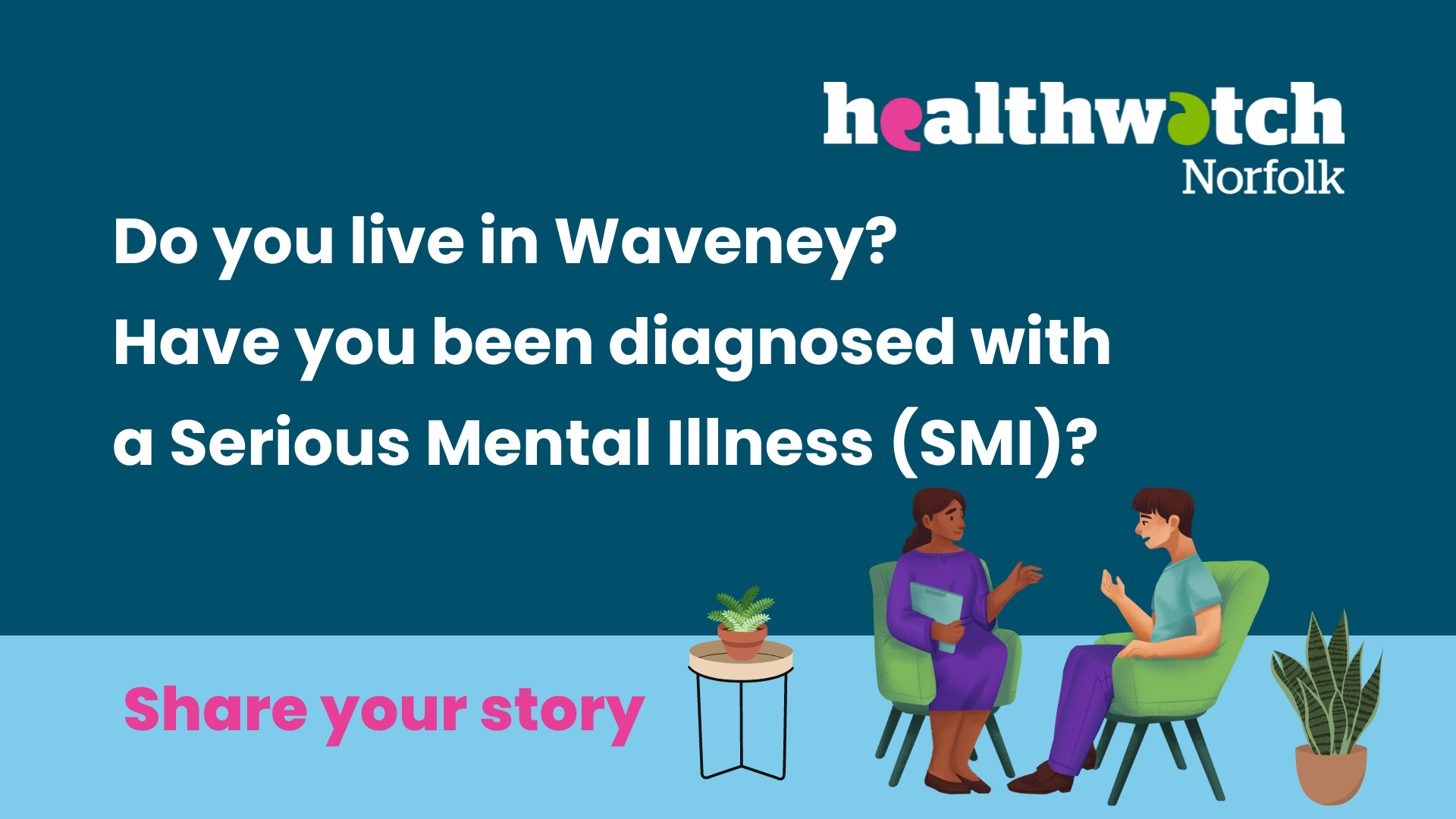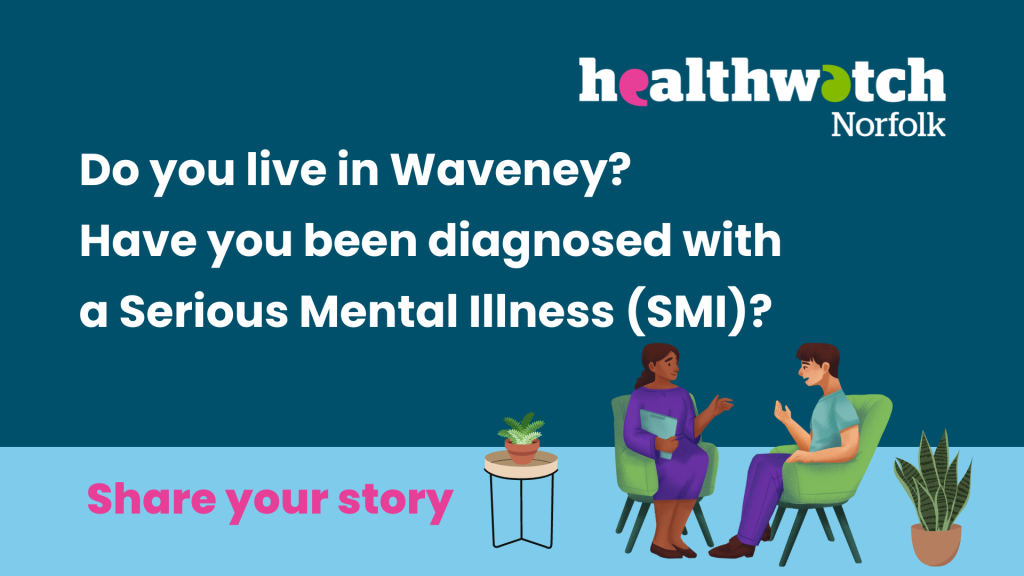People in Waveney are being invited to join a new study to find out how people with a Serious Mental Illness (SMI) are being supported in the community.
Healthwatch Norfolk is keen to find out what help patients and their carers are getting, what worked well, and what could be improved.
It is part of a long-term project from the organisation which works with people to find out their health and care experiences, and shares them with decision-makers to help shape future care.
The study launched earlier this year and is now being expanded into the Waveney area to ensure an even wider mix of views.
Alex Stewart, chief executive of Healthwatch Norfolk, said: “We are heading across into part of Suffolk so that we can hear from people in Waveney too. It is important for us to hear about good practice, and also where care and support has fallen short of what patients expect.”
The organisation is keen to hear from people who are severely affected by mental illness which covers conditions like:
- Psychosis
- Bipolar disorder
- Schizophrenia/Schizoaffective disorder
- Personality disorder
- Severe depression
- An eating disorder
- A mental health condition which needed rehabilitation
- Those struggling with mental illness during pregnancy or after birth.
How do you share your experiences?
Fill in a survey online by clicking here
Call Healthwatch Norfolk on 0808 168 9669.
Email [email protected]
Those leaving feedback may also be invited to have a one-to-one interview about their experiences in more detail.
This latest survey marks the third year of work that sees Healthwatch Norfolk work with the area’s mental health trust and NHS Norfolk and Waveney to see how the transformation of community mental health is going. Some of the things we heard in Year One were that:
- Just over 50 per cent did not have a care plan
- Over 70 per cent told us they were treated with care, dignity, and respect all or some of the time.
- Around two-thirds did not feel included or updated about the treatment of the person they cared for.
- When asked about changes to community based mental health services, the overwhelming response was that people had not experienced any positive change.
The full findings of Healthwatch Norfolk’s Year Two work will be published soon but early trends include:
Those at the helm of transforming change in community mental health are making some positive steps to change things.
Patient experience varied but those with a personality disorder or living with complex needs were the least satisfied, and many patients were concerned about poor communication.
There is still work to do to improve the experience of carers and loved ones of those with an SMI.
Although change is happening, many patients and carers are still not experiencing this, particularly among services not being joined up, waiting times for services and people feeling in control of their care.
Alex Stewart, Chief Executive of Healthwatch Norfolk, said:
“We want to hear how the progress of transforming community mental health care is going and that progress is happening. The first-hand knowledge of those who have received help will be invaluable to our work. Our team are very keen to listen to those experiences and see what those who are receiving help feel about the care and support they receive, both positive and negative.”


